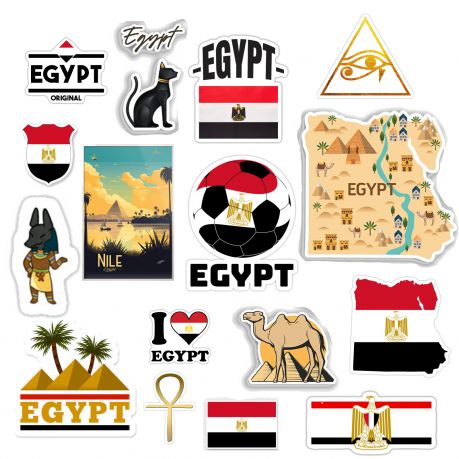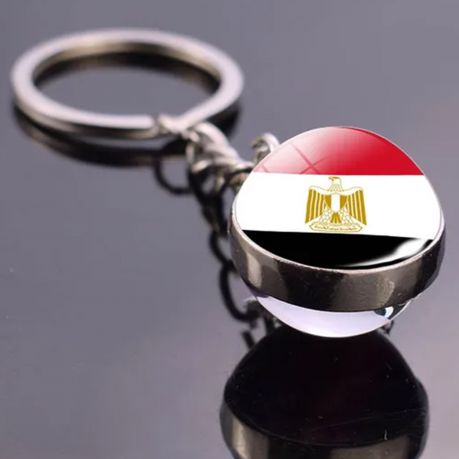Historic Egyptian football stadiums

Football: a national fervor that is experienced in Egyptian stadiums
In Egypt, football is much more than just a sport. It's a true passion that is lived every day, in the streets, cafes and, of course, in the stadiums. These sports venues are much more than just meeting places for supporters. They are temples of football, full of history and emotion, where the dreams and aspirations of an entire nation crystallize.
When the players take to the pitch and the supporters sing the songs of their favorite teams, an electric and vibrant atmosphere is created. The air is then filled with passion, hope and fervor. Stadiums become theaters where moments of intense joy, bitter disappointment and national unity are played out.
The Egyptian football stadium landscape is rich and diverse. There are historic and legendary venues, such as the Cairo International Stadium, which has witnessed unforgettable moments in the history of national football. Other stadiums, more modern and multifunctional, such as the Al Salam Stadium in Cairo, symbolize the ambition and dynamism of Egyptian football today.
In this article, we invite you on a journey through the Egyptian stadiums. We will explore their stories, their architectures and the unique atmospheres that characterize them. We will also look at the challenges and the future of Egyptian stadiums, which are part of the development of national football and its international influence.
So, fasten your seat belts and prepare to live an immersive experience in the heart of Egyptian football, through its legendary and vibrant stadiums.
Historic and legendary stadiums
Cairo International Stadium: The temple of Egyptian football
Inaugurated in 1960, the Cairo International Stadium, nicknamed "the Hell of Cairo", is a true institution of Egyptian football. Its capacity of 75,000 seats makes it the largest stadium in the country and one of the largest in Africa.
This stadium has been the scene of unforgettable moments in the history of national football. Egypt has won several continental titles there, including the African Cup of Nations in 1986, 1998 and 2006. The stadium has also hosted major events, such as the Under-20 World Cup in 2009 and the final of the CAF Champions League on several occasions.
The venue is known for its electric atmosphere and passionate supporters. The fans' incessant chanting and cheering create a unique atmosphere that often intimidates opposing teams. The Cairo International Stadium is a true symbol of Egyptian football and a source of national pride.
Borg El Arab Stadium: A modern architectural gem of Alexandria
Located on the Mediterranean coast, in Alexandria, the Borg El Arab Stadium is a true architectural gem. Inaugurated in 2006, it is distinguished by its modern and futuristic design, inspired by the pyramids of Egypt.
The stadium has a capacity of 86,000 seats and is one of the most modern in Africa. It was built to host the 2006 Africa Cup of Nations and has since been the scene of many important matches for the Egyptian national team.
The Borg El Arab Stadium is also known for its special atmosphere. The proximity to the sea and the breathtaking view of the Mediterranean coast help to create a unique setting for football matches.
El Gouna Stadium: A luxurious setting on the edge of the Red Sea
Inaugurated in 2008, El Gouna Stadium is located in the seaside town of El Gouna on the Red Sea. This luxurious sports venue offers an idyllic setting for football matches.
The stadium has a capacity of 30,000 seats and is equipped with modern, high-quality infrastructure. It regularly hosts matches of the Egyptian Premier League and continental competitions.
The atmosphere at El Gouna Stadium is calmer and more relaxed than in other Egyptian stadiums. The public is generally made up of families and tourists who come to enjoy the sporting spectacle in an idyllic setting.
These three historic and legendary stadiums constitute pillars of Egyptian football. They are witnesses to a rich history and boundless passion for this sport. They continue to host important matches and vibrate to the rhythm of the exploits of Egyptian players.
Modern and multifunctional stadiums
Cairo Al Salam Stadium: An ambitious sports complex in the new administrative capital
Located in Egypt's new administrative capital, Cairo's Al Salam Stadium is an ambitious, state-of-the-art sports complex. Inaugurated in 2019, it has a capacity of 60,000 seats and meets the highest international standards.
The stadium has an athletics track, a retractable roof and a state-of-the-art lighting system. It is also surrounded by a wide range of sports and leisure infrastructure, such as training grounds, gymnasiums and swimming pools.
Cairo's Al Salam Stadium is destined to become a center of excellence for sport in Egypt. It will host high-level football matches, athletics competitions and other major sporting events.
Cairo Stadium of the Future (under construction): A futuristic project to host major events
The Cairo Future Stadium is a futuristic project under construction in the new administrative capital. This ultra-modern venue will have a capacity of 90,000 seats and will be one of the largest stadiums in Africa.
The stadium will have a retractable roof, an LED lighting system and a giant screen. It will also be equipped with cutting-edge technologies for the safety and comfort of spectators.
The Cairo Future Stadium is designed to host major international sporting events, such as the Football World Cup and the Olympic Games. It will also be a conference and exhibition center, as well as an essential tourist destination.
These modern and multifunctional stadiums symbolize the ambition and dynamism of Egyptian football today. They contribute to the modernization of the country's sports infrastructure and its economic and social development.
Egyptian stadiums, whether historic, legendary, modern or multifunctional, constitute an essential part of the national sporting landscape. They are witnesses to a boundless passion for football and a constant desire to develop and rise to the international level.
Regional stadiums with a unique atmosphere
Harras El Hodoud Stadium: The cauldron of Alexandria and its boiling public
Located in Alexandria, the Harras El Hodoud Stadium is known for its electric atmosphere and its lively crowd. Nicknamed "the cauldron", this stadium is the stronghold of the El Hodoud club, one of the most popular in Egypt.
The stadium has a capacity of 22,000 and is often packed to capacity during important matches. El Hodoud supporters are known for their fervor and passion, creating a unique atmosphere that often intimidates opposing teams.
Al Masry Stadium in El Bahareya: A legendary stadium in the heart of the Nile Delta
Located in the heart of the Nile Delta, the Al Masry Stadium in El Bahareya is a legendary stadium which has seen great moments in the history of Egyptian football. Inaugurated in 1920, it is one of the oldest stadiums in the country.
The stadium has a capacity of 18,000 seats and is the home of the Al Masry club, one of the oldest clubs in Egypt. The stadium is known for its special atmosphere and its loyal supporters who come to support their team in difficult times as well as in moments of glory.
Al Ittihad Stadium in Alexandria: A stadium steeped in history and stronghold of a great club
Located in Alexandria, Al Ittihad Stadium is a stadium steeped in history. Inaugurated in 1929, it was the scene of many important matches for the Egyptian national team and Alexandria clubs.
The stadium has a capacity of 20,000 and is the home of Al Ittihad, one of the biggest clubs in Egypt. The stadium is known for its festive atmosphere and its passionate supporters who create a unique atmosphere during matches.
These regional stadiums with their unique atmosphere constitute an important element of the Egyptian football landscape. They are witnesses to a popular passion for football and a rich and vibrant sporting tradition.
The challenges and future of Egyptian stadiums
Improving infrastructure and spectator comfort
The development of Egyptian stadiums is not limited to the construction of new enclosures. It is also important to improve infrastructure and spectator comfort in existing stadiums.
This involves renovating facilities, improving access to stadiums, establishing effective security and emergency services, and developing a quality catering and entertainment offering.
The issue of safety and compliance with international standards
Security is a major issue for Egyptian stadiums. It is important to put strict measures in place to ensure the safety of spectators and players.
This involves respecting international security standards, training staff, setting up surveillance and access control systems, and coordinating with law enforcement.
The development of academies and training centers integrated into stadiums
Egyptian stadiums can also play an important role in the development of national football by hosting academies and training centers.
This will allow young players to benefit from quality infrastructure and professional coaching to develop their talents.
Egyptian stadiums are evolving. They must meet the challenges of the 21st century in terms of infrastructure, security and spectator comfort.
By investing in stadium development, Egypt can not only improve the quality of national football, but also contribute to the country's economic and social growth.
Egyptian stadiums are constantly evolving to meet the expectations of supporters and the demands of international competitions. New state-of-the-art stadiums are being built, while existing stadium infrastructure is being improved.
The aim is to create safe, comfortable and modern sports venues, which offer spectators a unique and unforgettable experience.
Egyptian stadiums are not just meeting places for supporters. They constitute an important cultural and sporting heritage, symbolizing the passion of the Egyptian people for football.
They are witnesses to a rich and vibrant history, and they will continue to play a central role in the development of national football and the promotion of Egyptian football identity.
The future of Egyptian stadiums is bright. They will continue to be places of passion, emotions and dreams for future generations of supporters and players.











